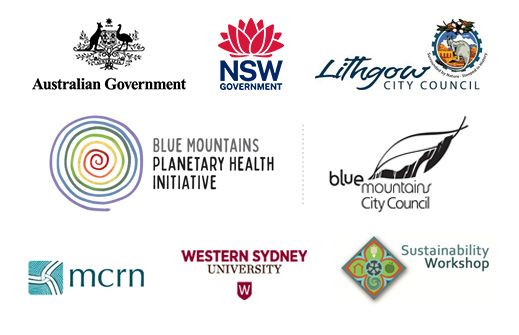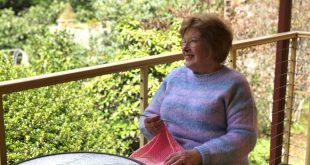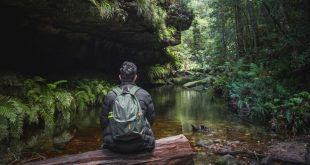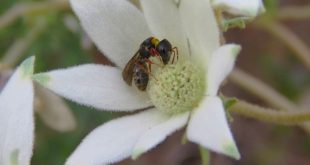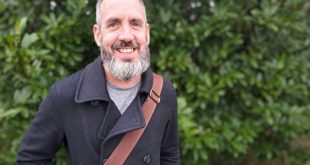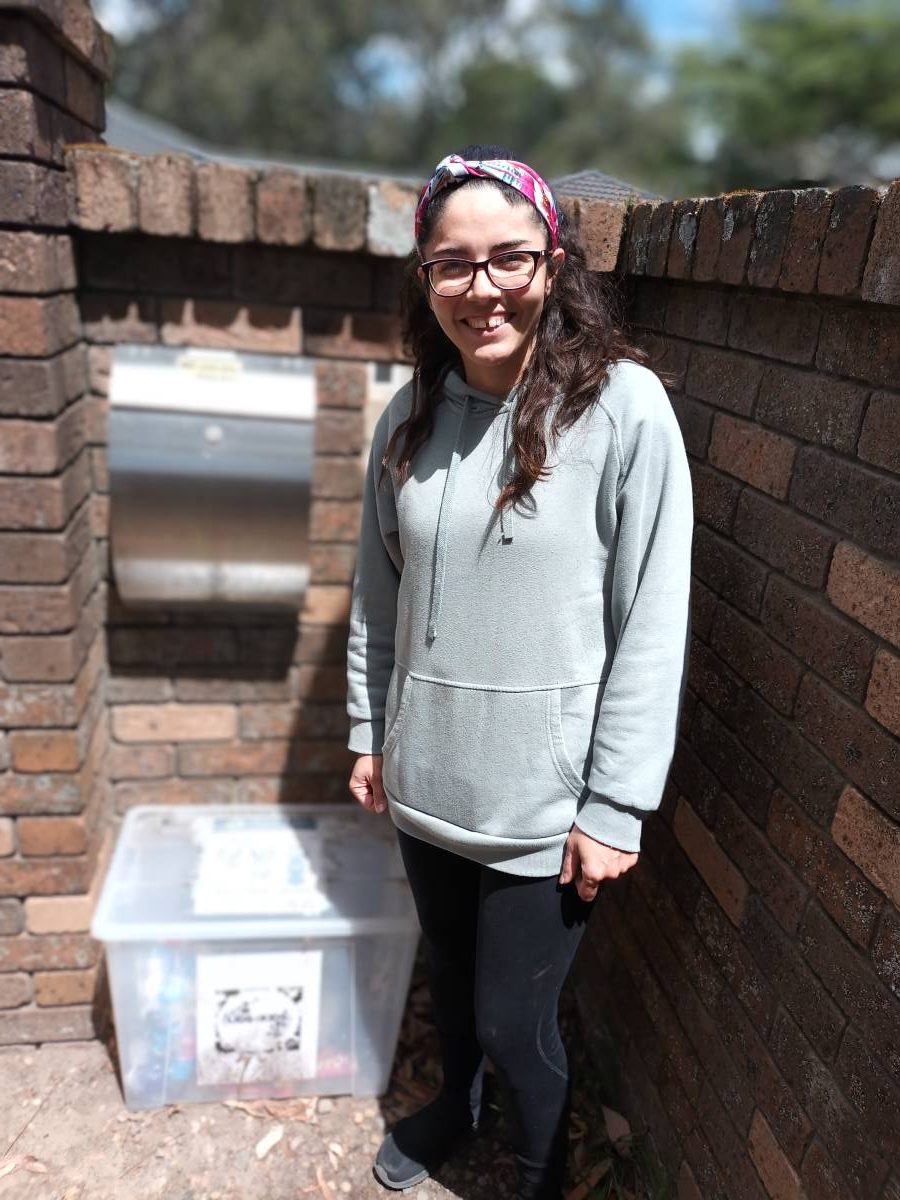
Daniela Montero beside her Lids4kids recycling drop off box in Winmalee. (Photo: Gabiann Marin)
Story by Gabiann Marin
Micro-recycling options are accessible and feasible for anyone, offering profound and important opportunities for us all to be part of creating a more sustainable and less wasteful world.
Key Points:
- Micro-recycling can save tonnes of plastic waste from landfill, and from ending up in our oceans.
- Small, volunteer-run schemes can provide real solutions to the world’s plastic problems
‘I do this for my kids,’ Daniela Montero smiles down at her youngest: a cherub-faced baby who watches everything with gleeful brown eyes.
Daniela herself is a tiny dynamo with an energetic vibe. Her smile is dazzling, her whole face lighting up with joy as she talks about her decision to start micro-recycling. The term micro-recycling is used for small volunteer schemes which collect and recycle plastics often left out of traditional council recycling schemes, but which can be re-used and recycled in a variety of clever ways.
Daniela has always believed in doing her bit for the environment. When she was younger, she was an active tree planter, and, along with her husband, believes in living by the words reduce, reuse and recycle. After having children she began looking for other tangible ways that she could do something to help the world.
‘My husband has had many jobs, and one of them was in landfill, and he came and showed us [the plastics]. It was there for so many, many years and it is still there. It never breaks down, so it is something that is a problem.’
Being a keen recycler, Daniela was surprised that so much plastic was still ending up in landfill despite the council recycling service. The reason for this is because there are many recyclable plastics that are not currently included in council recycling programs. The most well-known of these is soft plastics like shopping bags and food wrap. Thankfully, Blue Mountains City Council has introduced a soft plastic recycling trial which will run until June 2024 to tackle this problem.
Small plastic items are another major issue. Most people don’t realise that plastic items smaller than a credit card are not included in the suburban recycling services offered by local councils. This includes things like loose bottle lids and bread tags. These items are too small to be accurately sorted at most Materials Recycling Facilities (MRFs) and end up in landfill or in our oceans.
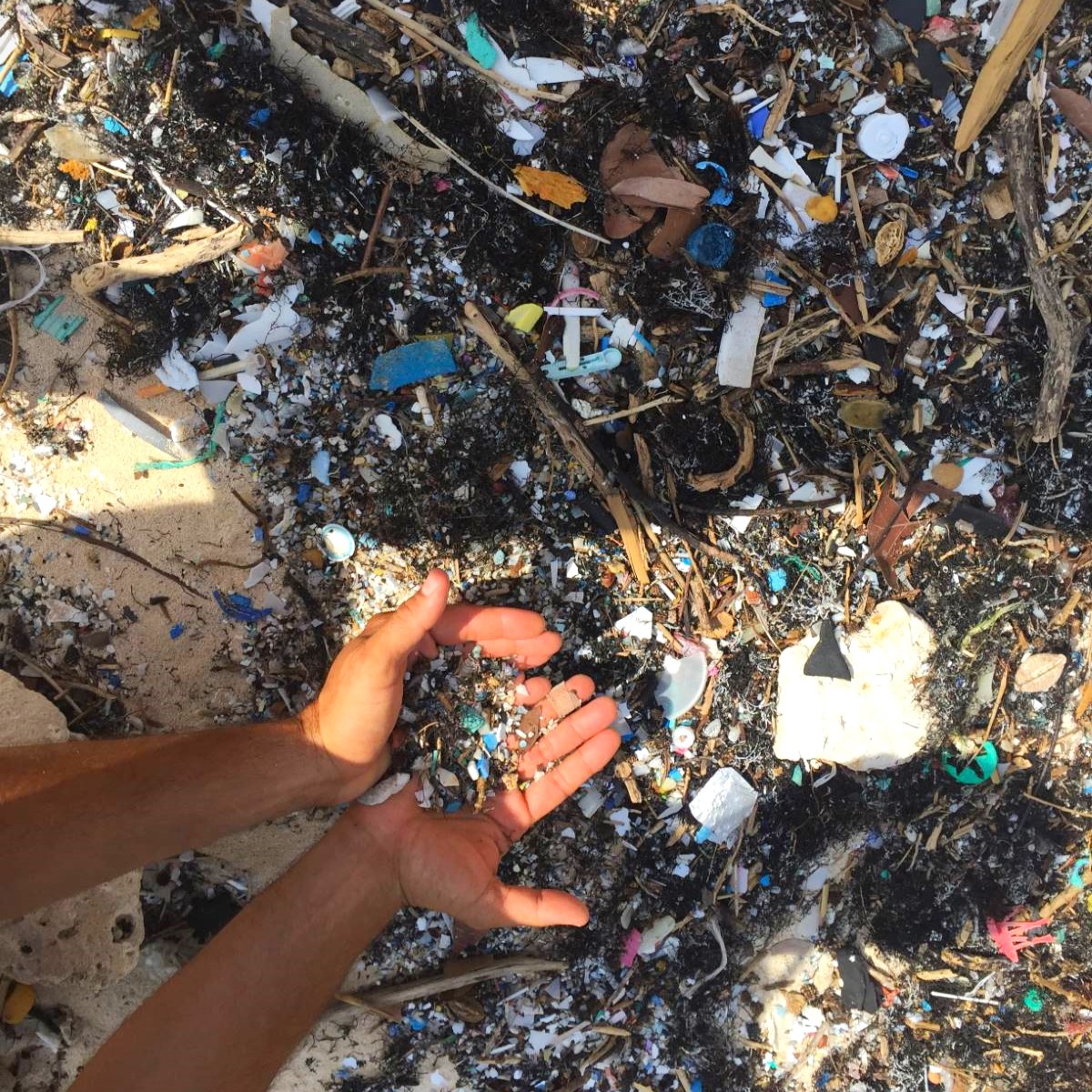
Plastic pollution is a major problem for the world’s oceans and their inhabitants (Photo: 5 Gyres Institute)
Thinking about this, Daniela wondered if there was something she could be doing to help reduce this waste.
‘I started doing some research and heard about this scheme where you could collect bread tags, which would then be recycled and money from this used to buy wheelchairs for people in South Africa.’ The circular nature of this appealed to Daniela, who quickly began collecting.
The charity Bread Tags for Wheelchairs started as a simple idea by Mary Honeybun, a retired South African nurse in 2006, and by 2019 the idea was international, with collection points set up around Australia. Part of the appeal was that this is something that can be done by anyone, anywhere.
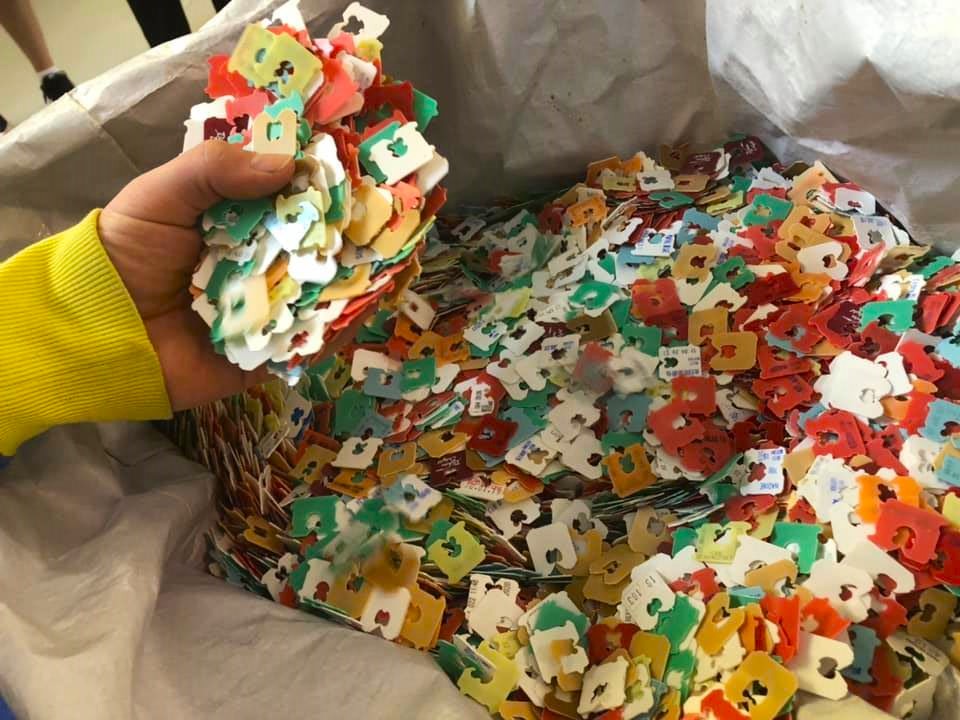
Over 11 tonnes of plastic bread tags have been collected and recycled throughout Australia. (Photo courtesy of Aussie Bread Tags for Wheelchairs)
These tiny plastic tags, used by companies to secure the bread wrapping, seem inconsequential, yet through the Aussie Bread Tags for Wheelchairs program nearly 11 tonnes of plastic have been saved from landfill in Australia alone.
The charity gives the tags to recycling company Transmutation, which makes a monetary donation for each kg received. This is then used to fund the purchase of wheelchairs for children and adults in need throughout South Africa and Papua New Guinea. It’s a great success story of businesses and charities working together to grow each other’s success and create social good, and has resulted in 85 specialised wheelchairs being purchased since 2019.
‘I thought this was amazing,’ Daniela recalls, ‘instead of going to landfill, where it would stay forever, it can give a second life.’
Anushca, a 12-year-old from South Africa, who suffers from a rare brain condition, has had her quality of life improved with the specialised wheelchair paid for by the donated funds.
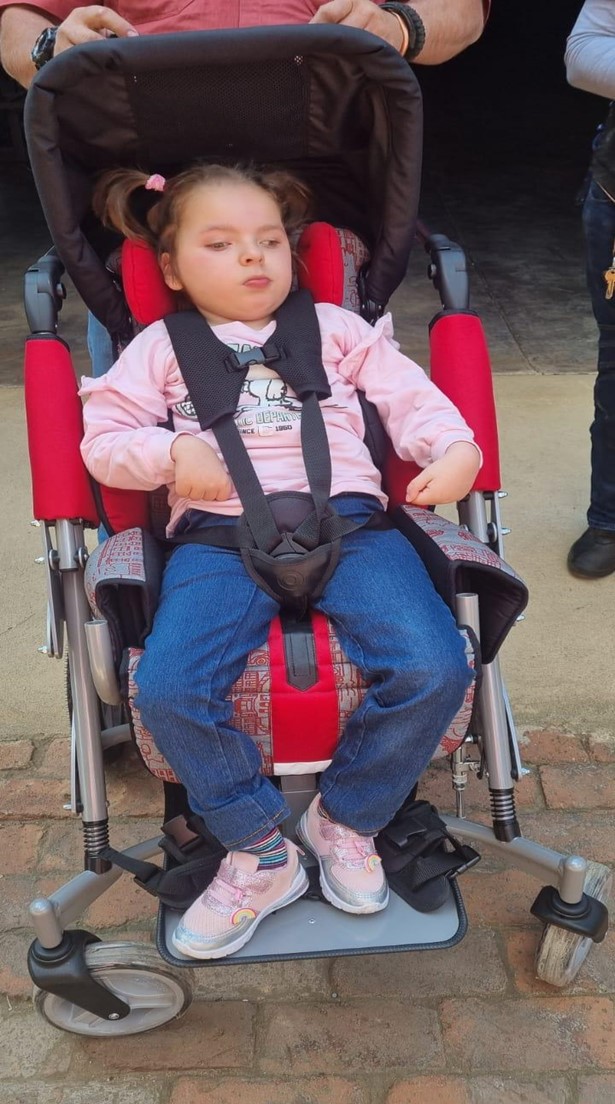
12-year-old Anushca is one of many children who now have specialised mobility aids thanks to Aussie Bread Tags for Wheelchairs (Photo: Aussie Bread Tags for Wheelchairs)
Daniela signed up in 2020 and was soon a collector, helping to contribute to the 250kgs of bread tags recycled in Australia per month.
‘But then I thought, I want to do more, how much can I push this?’
Daniela continued her research and discovered an Australian charity called Lids4Kids. It was very similar to the bread tags scheme, only it focussed on bottle tops.
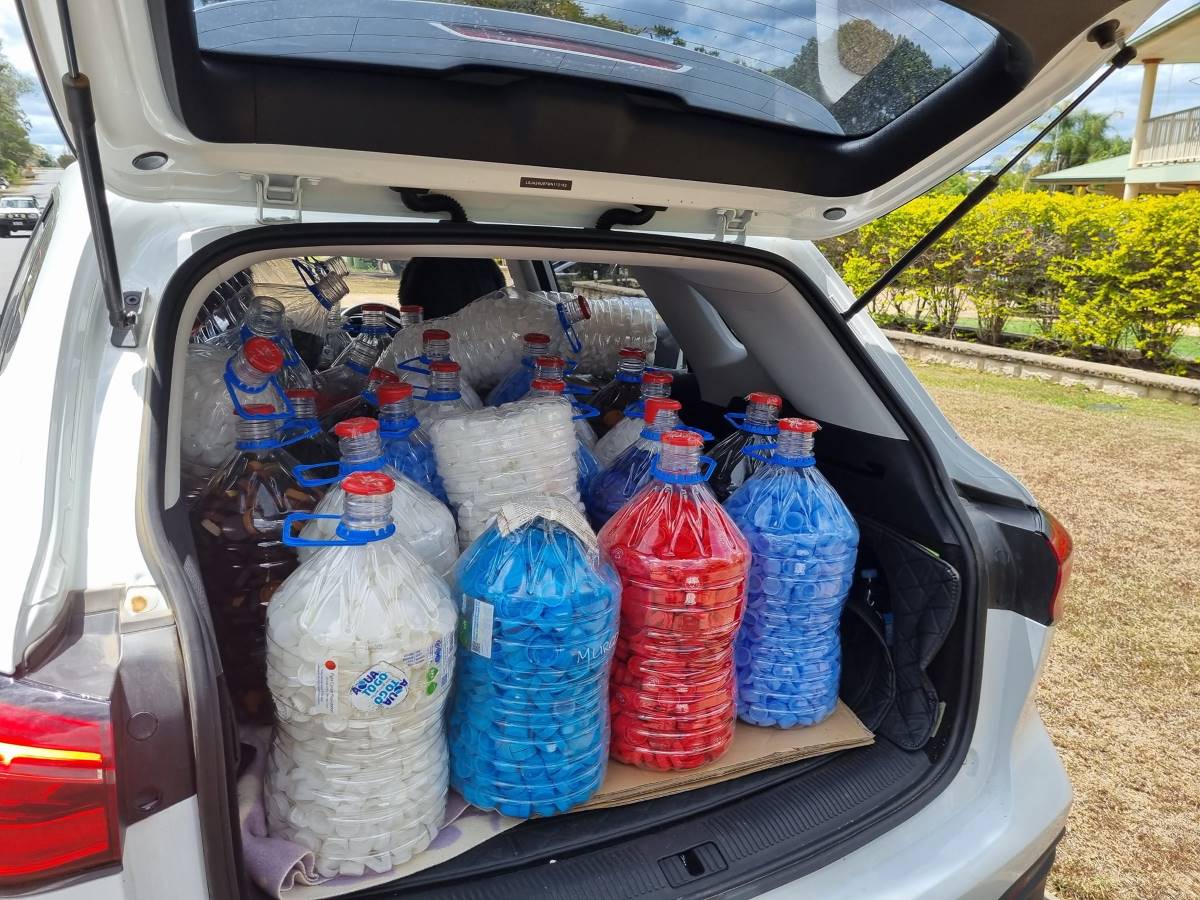
Lids4Kids collects lids from all around Australia for processing into recycled plastic products. (Photo courtesy Lid4Kids)
Tim Miller, the founder of Lids4Kids, himself a full-time dad to three children, had a similar response to Daniela when he learned about the problem of recycling bottle lids. He felt there had to be a way to repurpose this plastic.
In 2019 he started a small recycling scheme from his living room in Canberra. Partnering first with Victorian plastic recycling company Envision and more recently with Precious Plastics Melbourne, he made it his mission to keep thousands of plastic bottle lids out of landfill, and out of our oceans.
From such humble beginnings the scheme has grown organically through social media into a national program that provides collection and drop off points for plastic lids in every state and territory of Australia. Its success is a testament to how, from small things, big things grow, as hundreds of collection volunteers like Daniela are able to help reduce the huge impact that small plastic pollution is having on the world’s wildlife and ecosystems.
Recent studies released by World Wide Fund for Nature have estimated that 88% of the world’s marine life is impacted by plastic waste. Turtles and seabirds are some of the worst affected with an estimated 97% of seabirds having ingested some plastic during their lifetime. Small plastic items like bottle lids can be especially dangerous, as they can block airways or get caught in intestinal tracts leading to slow and painful deaths for affected animals. So much of this can be avoided if we simply remove the plastics from the equation.
Daniela hugs her small child closer and smiles. ‘You know what, [I thought] I can do that, all I have to do is just save the lids in my garage and then have them picked up.’
At first Daniela began by saving her own bottle tops, but soon she realised she could become a collection point for others, multiplying the number of lids collected in the Lower Mountains. Currently she collects around 1.5 kgs of lids every month, which are recycled as rainbow benches and play equipment for schools.
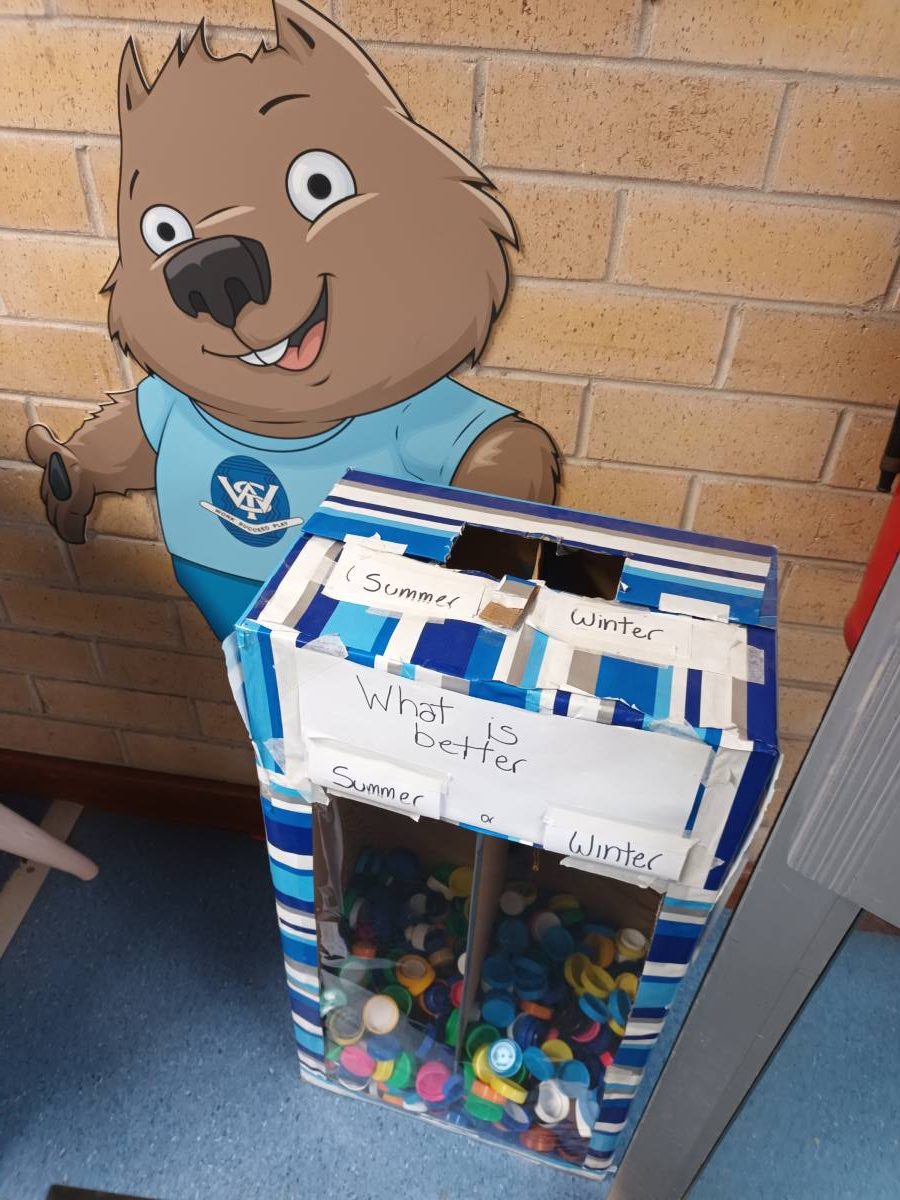
Winmalee Public School hosts a Lids4Kids drop off point to heighten education and understanding about sustainability.
Daniela approached the Principal of Winmalee Public School, Kate Ford, and suggested a collection point at the school where students, staff and parents could deposit their lids, encouraging the whole school community to get involved.
‘We thought it was a great idea,’ Kate Ford recalls. ‘We got involved because it was all about sustainability. And a way that the kids could see just how much plastic they consume.’
Emma Holliday, current CEO of Lids4kids reveals that over 110 million lids have been recycled in the scheme in the last four years, and the numbers continue to grow.
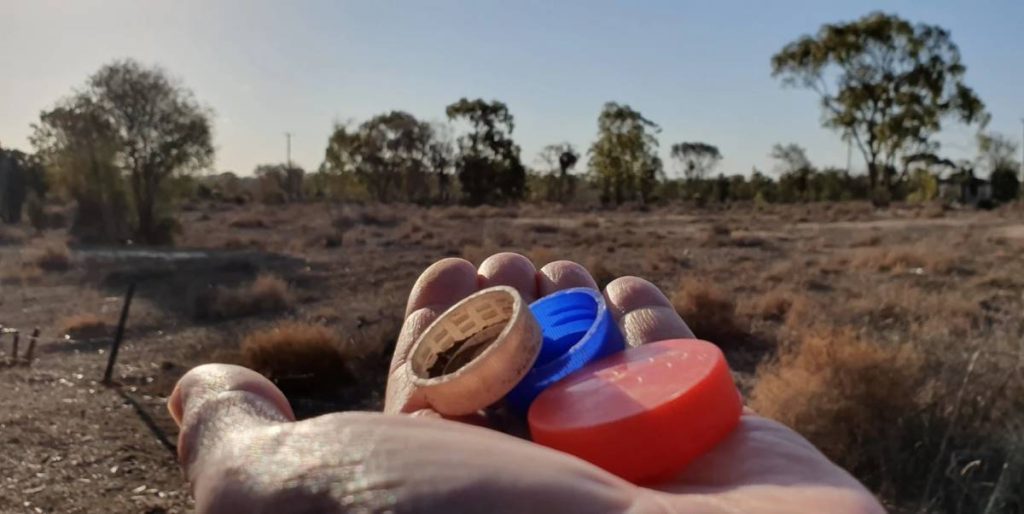
Micro-recycling like Lids4kids and Bread Tags for Wheelchairs prevents tonnes of plastic waste ending up in landfill. (Photo courtesy Lids4Kids)
‘I am amazed by how people have embraced this,’ Emma says, commenting on the hundreds of people who volunteer their time to collect and deliver these bottle tops to the base in Canberra. Daniela agrees it is amazing, but not surprising, because she knows what motivates those who dedicate their time and effort towards these small acts of recycling.
‘This is the world I am leaving my kids,’ she says, ‘I want the best for them. So, I am always asking, what more can I do? Can I do a bit more?’
How you can help
Find out what you can do locally to reduce waste here
Reduce
The best way to reduce plastic pollution is to reduce plastic use, so avoid plastic packaging and cheap plastic products.
Buying items from co-ops using reusable containers, choosing fabric or paper packaged products and grocery shopping at grower’s markets rather than supermarkets are also great ways to help solve the world’s plastic pollution problem.
Re-use
Re-using plastic products before recycling or disposal will extend their life and ensure less ends up in landfill or in our oceans. Almost Zero Waste has some great ideas to re-purpose a range of everyday plastic items.
Most plastic packaging is safe to re-use after washing, although it is recommended that you do not re-use any plastics which are numbered #1, #3, #6 or #7 for food storage.
Recycle
Find out more about Blue Mountains City Council’s recycling service here: https://www.bmcc.nsw.gov.au/bin-collection-service
The following can go into your yellow recycling bin: empty and RIGID plastic household containers from the kitchen, bathroom and laundry, such as single use plastic bottles, sushi and sandwich containers, take away containers, hard plastic meat trays, yoghurt and dip tubs, berry punnets and biscuit trays (not wrappers).
Soft plastics can be recycled with Council’s soft plastics recycling trial.
If you would like to start collecting and recycling your bottle tops simply ensure the caps are washed and dried and any inserts removed. Drop the lids either in the donation point at Winmalee Public School or contact Lids4Kids to organise a drop off. Only plastic lids with the numbers 2 or 4 are recyclable through the Lids4kids scheme so make sure you check the number before donating.
To get information about how to collect and deposit bread tags go to Aussie Bread Tags for Wheelchairs. They are particularly involved with schools, so if you would like to get your school involved, Jenny from Bread tags for Wheelchairs is happy to send out an education pack upon request. Contact them here.
This story has been produced as part of a Bioregional Collaboration for Planetary Health and is supported by the Disaster Risk Reduction Fund (DRRF). The DRRF is jointly funded by the Australian and New South Wales governments.
